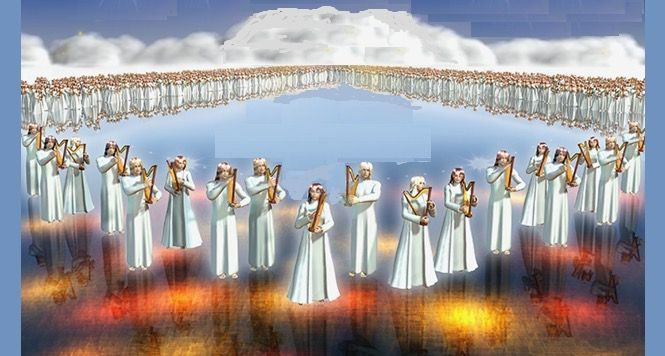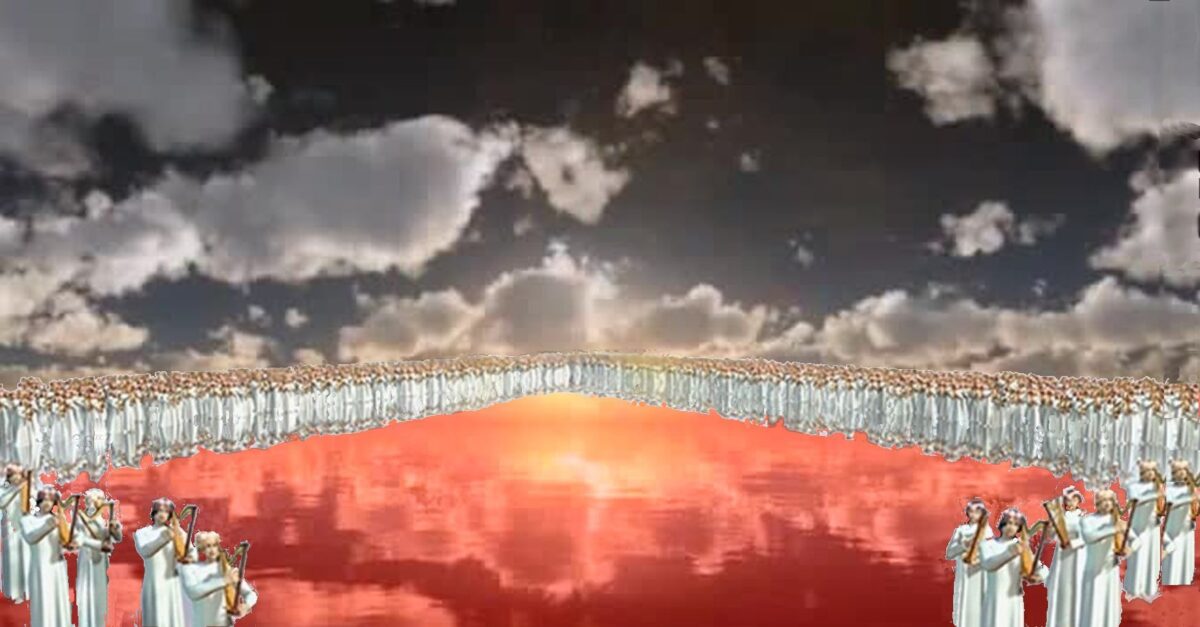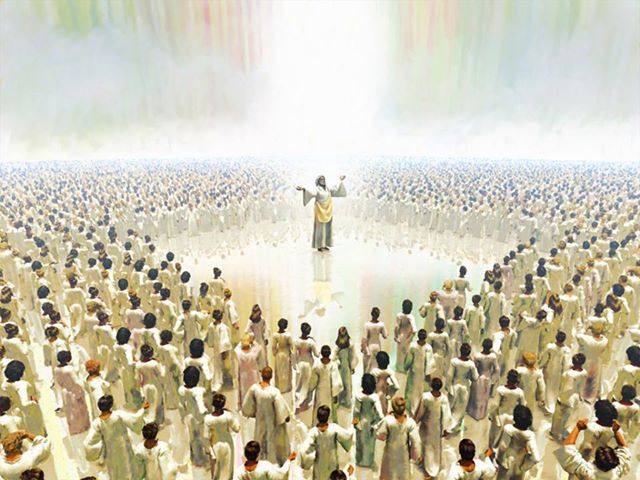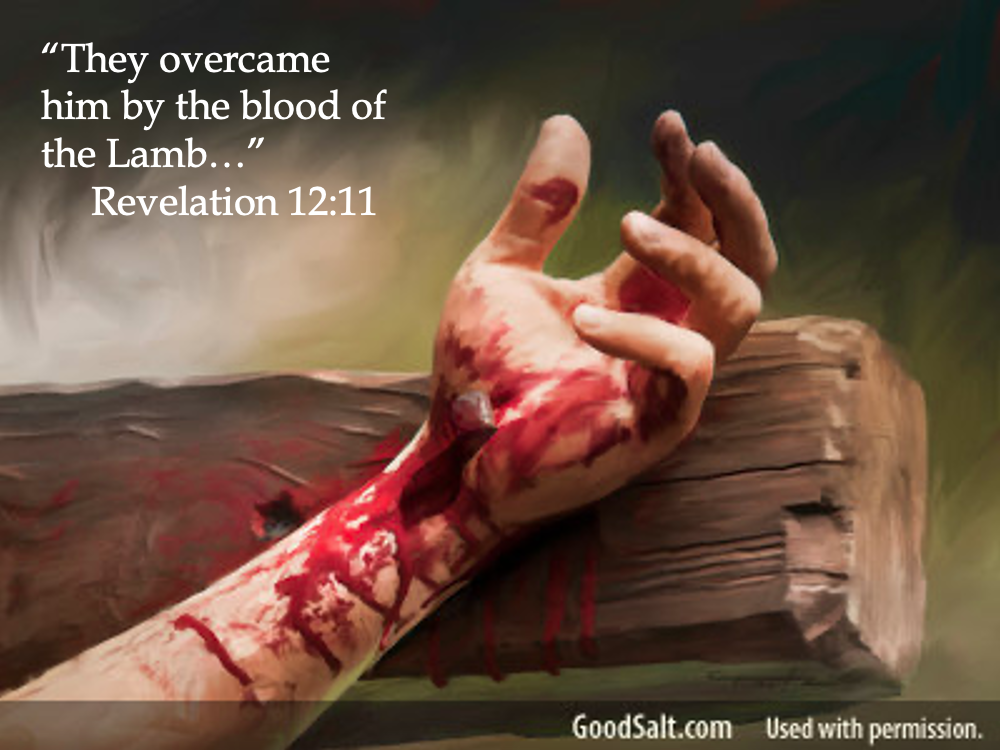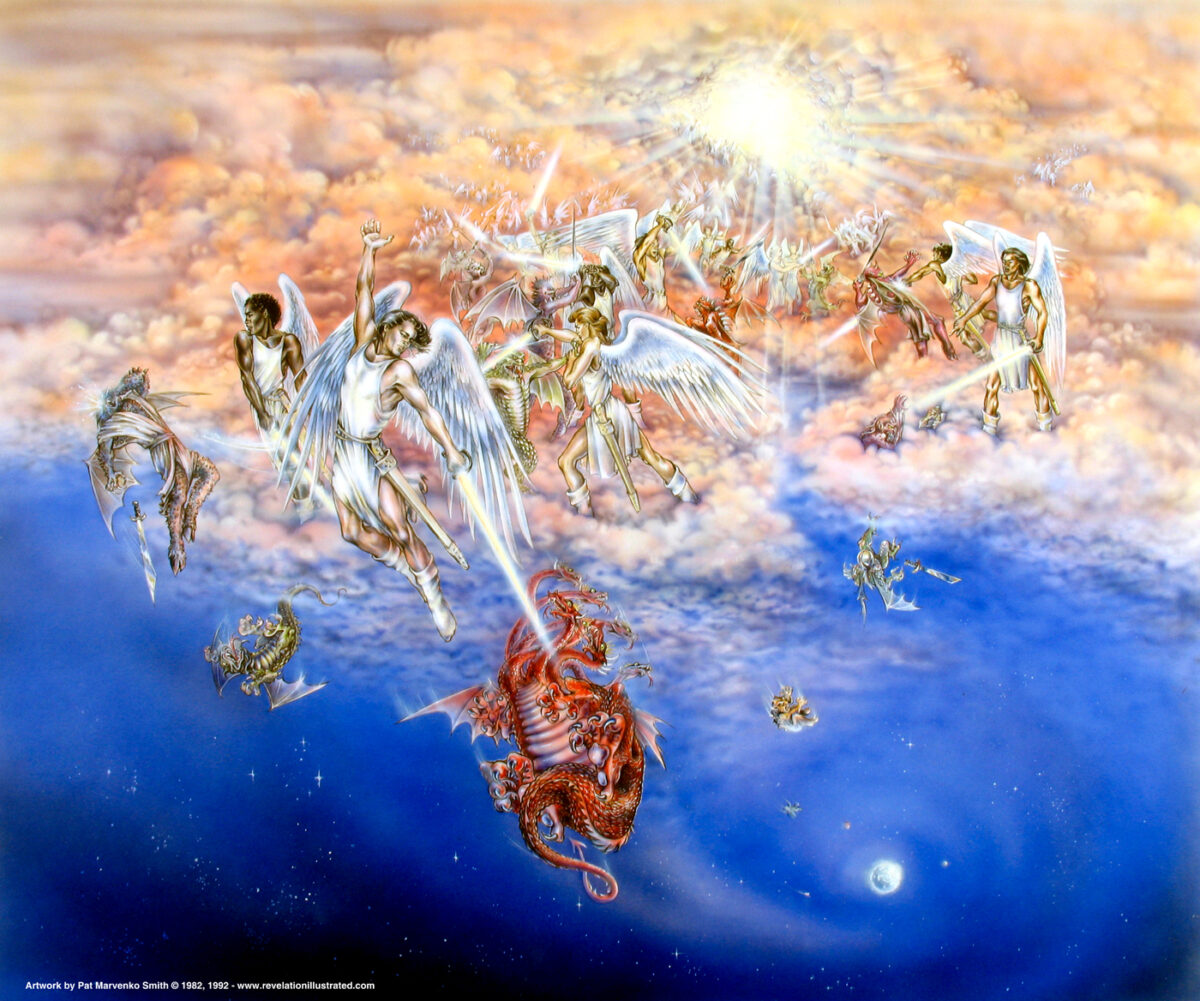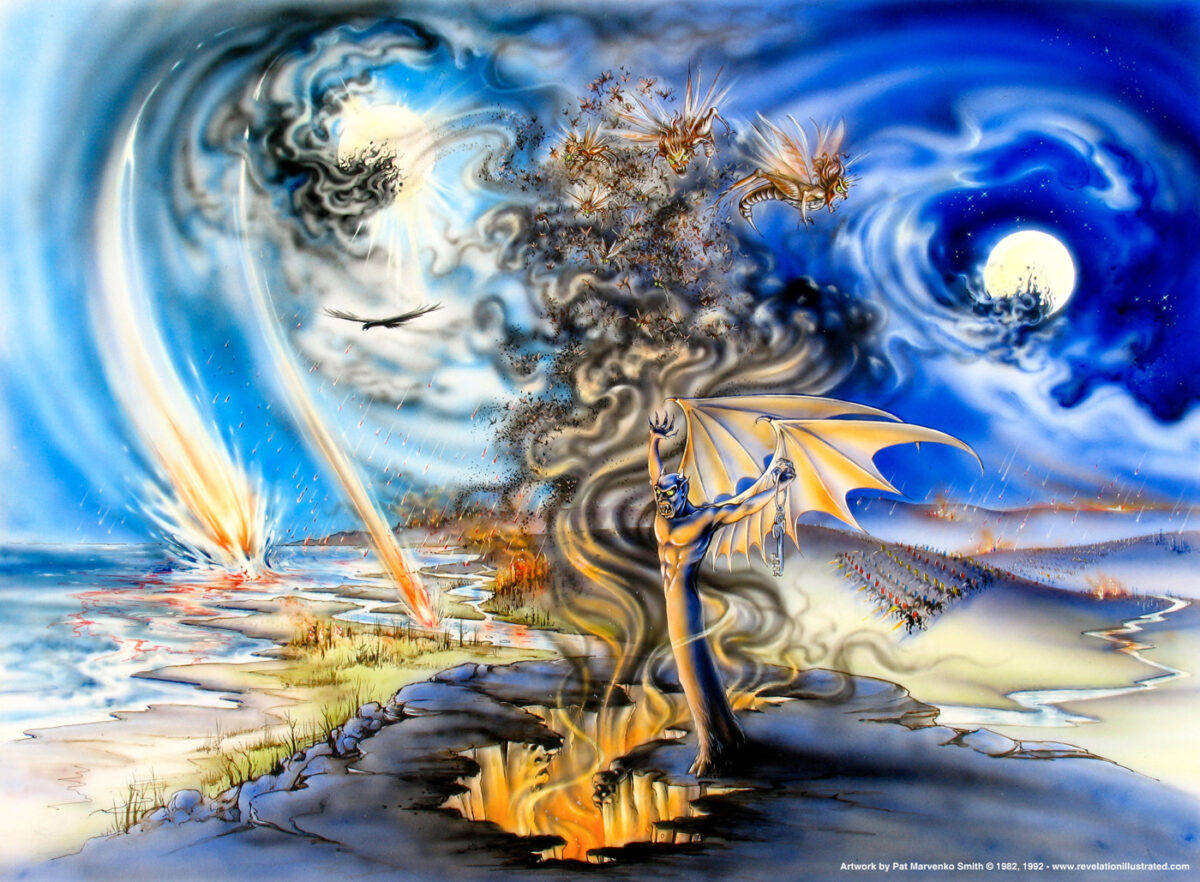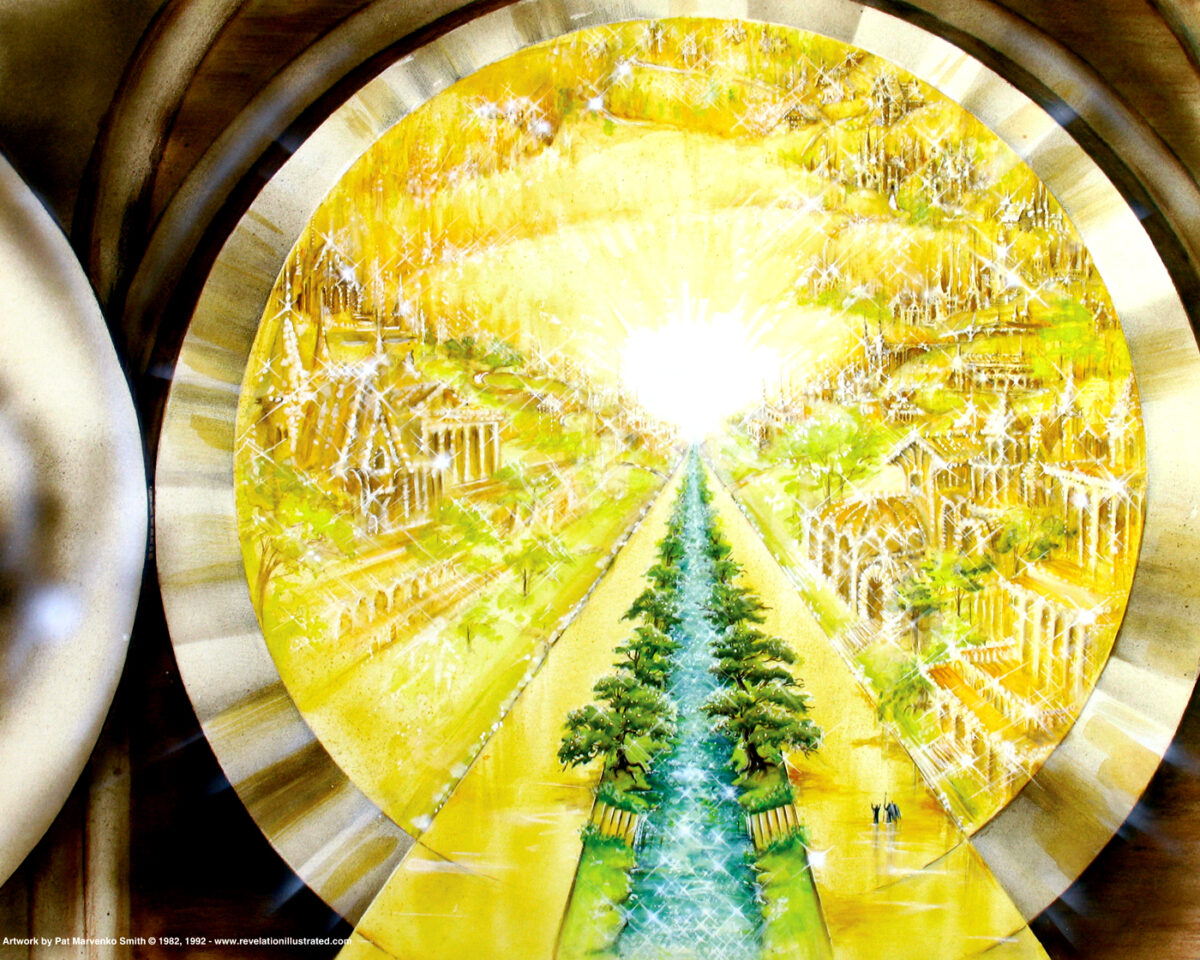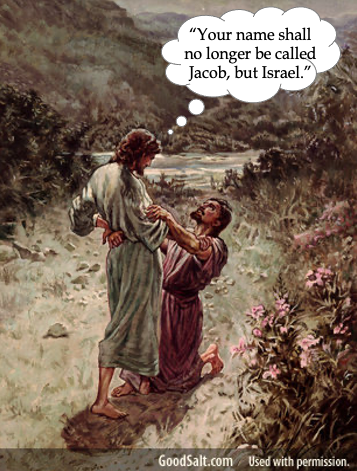“3 Then out of the smoke locusts came upon the earth. And to them was given power, as the scorpions of the earth have power… 5 And they were not given authority to kill them, but to torment them for five months. Their torment was like the torment of a scorpion when it strikes a man.” Revelation 9:3, 5
The Devil and his demons have been at work tempting and attacking humans since their sneak attack in the Garden of Eden thousands of years ago (Genesis 3). They have never stopped pursuing their ultimate goals of destroying humankind’s dignity and driving a wedge between people and their Creator God. But Revelation 9 shows us that a time will come when the invisible spiritual warfare that people experience today will seem pale compared to the visible assault of the enemy’s army during the last half of the Tribulation period. As we study John’s vision and observe the armies of darkness battling in the future, we can better understand how similar spirits of wickedness try to plague us today. 1
Following the announcement of three woes warning that the next three trumpet judgments would be worse than the first four (8:13), John continues by recording the fifth trumpet judgment (9:1-12). “In this chapter, there are more occurrences of the words ‘as’ and ‘like’ than in any other chapter in the Bible, which shows how difficult it was for John to describe the scene which he saw in the vision.” 2
John writes, “Then the fifth angel sounded: And I saw a star fallen from heaven to the earth. To him was given the key to the bottomless pit.” (Revelation 9:1). When “the fifth angel sounded” the trumpet blast, John “saw a star fallen from heaven.” This is not an actual “star,” but either the Devil (cf. Isaiah 14:12-14) or a fallen angel (Revelation 12:3-4a) because “to him was given the key to the bottomless pit.” Just as a key grants us access to a home, office, or car, this key grants this angelic being access to the shaft “to the bottomless pit” or abyss. The abyss is the abode of the demons, according to Luke 8:31, in which demons begged Jesus “not to banish them.” 3
The “bottomless pit” (lit. “shaft of the abyss”) is the future abode of Satan (cf. Revelation 20:1-3), some demons (cf. Luke 8:31; 2 Peter 2:4; Jude 6), and the beast (Revelation 11:7; 17:8). It is evidently a preliminary prison, not their final abode, which is the lake of fire (or hell – Revelation 19:20; 20:10; cf. Matthew 25:41), from which this angel is about to release some of them temporarily. 4
During the tribulation, this angelic being will be granted authority to unlock this bottomless pit. A principle illustrated in this verse is that Satan and his demons only have as much authority as God grants them. Nowhere in Scripture is that principle more prominently revealed than in Job 1:12 and 2:6, in which Satan cannot harm Job without God’s permission. But what the devil intends for evil, God intends for good. 5
“And he opened the bottomless pit, and smoke arose out of the pit like the smoke of a great furnace. So the sun and the air were darkened because of the smoke of the pit.” (Revelation 9:2). When this angelic being uses the authority given to him to open “the bottomless pit,” so much “smoke arose” that “the sun and the air were darkened.” This may refer to some type of volcanic eruption of a magnitude never experienced on earth. 6
Next John writes, “3 Then out of the smoke locusts came upon the earth. And to them was given power, as the scorpions of the earth have power. 4 They were commanded not to harm the grass of the earth, or any green thing, or any tree, but only those men who do not have the seal of God on their foreheads. 5 And they were not given authority to kill them, but to torment them for five months. Their torment was like the torment of a scorpion when it strikes a man. 6 In those days men will seek death and will not find it; they will desire to die, and death will flee from them.” (Revelation 9:3-6). That these “locusts” are demonic creatures who appeared in the form of locusts is confirmed by the fact that they came from the Abyss, the home of demons (Luke 8:31). 7 These creatures were given the “power” of “scorpions” to “torment” people who did not have “the seal of God on their foreheads” with intense pain (9:3-4). These demons will not be able to harm followers of Jesus.
They could not “kill” unbelieving people, but for “five months” they could inflict such severe pain on them like a scorpion’s sting that these nonbelievers “will seek death,” instead of repenting, but would not even be able to commit suicide (9:5-6). “They will be forced to live through a period of prolonged, demonic suffering intended for those who do not know Jesus as their Savior.” 8
Swindoll writes, “We can marvel at the overwhelming number and startling appearance of these supernatural locusts, but we shouldn’t miss the limitations placed on them. First, note that their power will be ‘given’ to them (9:3). The word ‘power’ (exousia), means ‘authority’ or ‘permission.’ It may appear at first that this swarm is completely out of control, but we must remember that they can do nothing apart from God’s permission.
“Second, they will not be permitted to harm the things that locusts usually devour—vegetation, crops, or grass (9:4). These aren’t your average hungry locusts! Their target will not be plants but people.
“Third, although they will be told to harm humans, they can only inflict their torment on certain people— ‘men who do not have the seal of God on their foreheads’ (9:4). This recalls the remnant of Israel, sealed for protection in 7:2-3. Those saints will be spared from the suffering inflicted by the locusts.
“Fourth, they will be given authority to torment, not to kill (9:5). This torment will be similar to the torment of a scorpion sting—excruciating, burning, even debilitating, but in this case, not deadly.
“Finally, God will place a limit of five months on their mission of torment (9:5). But in those five months the physical, mental, emotional, and spiritual agony these people will experience will drive them mad. Some of the most haunting words in all of Scripture describe the desperate situation: ‘And in those days men will seek death and will not find it; they will long to die, and death flees from them’ (9:6).” 9
Having just explained what these demonic creatures will do, John now describes what they will look like from head to tail. John’s vision here is a primarily symbolic vision as the word “like” is used eight times, pointing to a figurative rather than literal interpretation. 10 “The shape of the locusts was like horses prepared for battle.” (Revelation 9:7a). Locusts resemble “horses” when viewed through a magnifying glass, 11 but this sentence emphasizes the ferociousness of these demonic locusts and their intimidating looks.
“In the Old Testament, locusts were instruments of judgment, as in the eighth plague God brought upon the Egyptians (Exodus 10:1-20) and in the judgment envisioned by the prophet in Joel 1:2-12.” 12 “As horses prepared for battle, the demons from the abyss will be extremely swift (cf. Joel 2:4).” 13
“On their heads were crowns of something like gold, and their faces were like the faces of men.” (Revelation 9:7b). Their “crowns” (stephanos) represent their victory over the people they oppressed. 14 The fact that “their faces” resembled “men” points to their intelligence. “They are intelligent creatures, perhaps even alluring, utilizing deception and persuasion to attract people. But their goal will be to torture, to tear apart, and to destroy.” 15
Next John writes, “They had hair like women’s hair, and their teeth were like lions’ teeth.” (Revelation 9:8). These demonic creatures possessed an initial allurement with “hair like women’s hair.” “Since one of the attractive qualities of a woman is her hair, it is possible that there is something about mankind’s experience of this plague that is similar to sexual attraction. The conjoining of this with ‘teeth…like lions’ teeth’ may indicate that though there is an initial allurement pulling people to this experience, in the end, the experience is like the bite of a lion in its painfulness. In ages past (as well as in contemporary society), sinful people have involved themselves in matters concerning sexual relations with demonic entities (who if they became visible might be beautiful indeed). Yet it is clear that the description given here by John paints their true character—they will be like hungry lions that ravage peoples’ lives.” 16 (emphasis mine)
“9 And they had breastplates like breastplates of iron, and the sound of their wings was like the sound of chariots with many horses running into battle. 10 They had tails like scorpions, and there were stings in their tails. Their power was to hurt men five months.” (Revelation 9:9-10). Their “iron . . . breastplates,” which covered both chest and back in John’s day, 17 gave them appearance of indestructibility by humans. People will not be able to overcome this demonic army. The “sound of their wings” was terrifying “like the sound of chariots with many horses running into battle.”
“The fact that this army sounded to John like chariots with many horses running into battle indicates the terror that they will inspire in the hearts of those who have given in to their seductive allure. It can be compared to the terror in the hearts of ancient soldiers who suddenly and without warning find themselves facing a rush of chariots and horses (cf. 2 Kings 7:6-7; Jeremiah 47:3). People overcome by this deception will not experience physical pleasure, but torment similar to the stings of scorpions.” 18
This plague will afflict unsaved people for a period of “five months” (cf. Rev 9:5, 10), which emphasizes that God is in control of the spirit world and over the events of the Tribulation. 19 “Unlike the previous judgments which apparently were short in time this judgment extended for five months… This is important as it refutes clearly the notion that all these judgments will occur in a brief span of time immediately before the second coming of Christ.” 20
The leader of this demonic army is addressed next. “And they had as king over them the angel of the bottomless pit, whose name in Hebrew is Abaddon, but in Greek he has the name Apollyon.” (Revelation 9:11). “The names ‘Abaddon’ in Hebrew, and ‘Apollyon’ in Greek, both mean ‘Destroyer.’ Only the apostle John supplied information bilingually in the New Testament (cf. John 1:38, 42; 4:25; 6:1; 9:7; 11:16; 19:13, 17, 20; 20:16; Rev. 1:7; 3:14; 12:9). The objective of these demons, like their leader’s name implies, is to destroy people. God grants this lead ‘angel-king’ creature permission, here in this judgment, to carry out his objective against unbelievers, as part of God’s outpouring of wrath on earth-dwellers (cf. Job 2:6).” 21 (emphasis mine)
Some suggest that this “king over” this demonic army is Satan, 22 but this is unlikely because the text only calls him an “angel.” Also,Satan’s abode is not in the “bottomless pit” or abyss —at least not until he is cast down into it at the end of the Tribulation (Revelation 20:1-3). In contrast, this king’s authority seems to be limited to the demonic army that comes from the abyss itself. 23
“In two passages in Revelation Satan is spoken of by alternate names (12:9 and 20:2). In both places John clearly states that he is speaking of Satan. If the angel of the bottomless pit is Satan, John would have clarified it here as well.” 24
So, who is this “angel of the bottomless pit”? He is probably a high-ranking fallen angel (cf. Ephesians 6:12) serving his master, Satan. 25
Finally, John states, “One woe is past. Behold, still two more woes are coming after these things.” (Revelation 9:12). This verse is transitional, and clarifies that the fifth, sixth, and seventh trumpet judgments are the same events as the first, second, and third “woes” announced by the eagle earlier (8:13). The third woe, then, would be the seven bowl judgments. Although the release of this demonic locust army may seem sufficient from a human vantage point, God says He is only getting started. 26 The second and third woes will be worse.
You may be wondering, “How does the five-month demonic attack in the last half of the future Tribulation relate to us today?” Swindoll shares several insights:
“Although they are invisible, demons are real and aggressive. Not all demons are confined to the abyss (see Luke 8:31). Countless spirits of wickedness roam freely, and as long as they do, they are in search-and-destroy mode. They’ll pounce at any opportunity to strike both believers and unbelievers. Sometimes we’d rather pretend these beings don’t exist—or that they are so limited in power that we don’t need to worry about them. Not true! Ignorance of our enemies gives them an advantage over us. Don’t be naive!
“We are reminded that demons are organized and committed to our destruction. Like a battle-hardened army, Satan’s forces know how to wage an efficient war to conquer the hearts and minds of all people. From subtle tricks to a full-blown spiritual blitzkrieg, they are ready to use whatever means necessary to win. Take a close look at 1 Peter 5:8: ‘Be of sober spirit, be on the alert. Your adversary, the devil, prowls around like a roaring lion, seeking someone to devour.’ How can you be more ‘sober’ and ‘alert’ in light of this warning? Peter gives us some hints in 1 Peter 1:13-16: ‘Therefore, prepare your minds for action, keep sober in spirit, fix your hope completely on the grace to be brought to you at the revelation of Jesus Christ. As obedient children, do not be conformed to the former lusts which were yours in your ignorance, but like the Holy One who called you, be holy yourselves also in all your behavior; because it is written, “YOU SHALL BE HOLY, FOR I AM HOLY.”
“In light of this passage, are you prepared for inevitable spiritual attacks?
“We should be encouraged that, although these demons are powerful, they have limitations. We see that even during the Tribulation these wicked angels can only do what they are allowed to do. Today—in the age of the Spirit’s restraining power through the church—their abilities are even more limited (2 Thes. 2:6-8). But don’t underestimate the deceptive and destructive powers of the enemy (Jude 1:8-10). As soon as we drop our guard, we’re liable to crumble under his attacks. We can’t neglect our spiritual lives, forsake our assembling with other believers, or trust in our own strength.
“Finally, we must never forget that these aggressive and insidious creatures flee at the name of the Lord Jesus Christ. At His matchless name they cower in fear, run for cover, and scramble for survival. With a single syllable of rebuke, Jesus Christ can flatten Satan’s entire army. They are no match for Him (Luke 8:26-31). Let Christ handle your spiritual battles for you. Submit to Him. Release all your anxieties to Him through prayer (1 Pet. 5:6-7). Resist the devil in faith, resting in Christ and trusting that He alone can shut the mouth of the roaring lion and quench the flaming arrows of the evil one.” 27 (emphasis mine)
While spiritual warfare today is very real, believers in Jesus can experience the victory Christ has already won in the spiritual realm by wearing the whole armor of God (Ephesians 6:10-19). Please join me in putting on the whole armor of God by praying these Scriptures in Ephesians 6:10-19 back to our victorious God.
Prayer: O Father God, since Satan and his servants are far wiser and stronger than us, please grant us strength in the power of Your might to put on the whole armor of God so we may stand against the schemes of the devil.
Protect us O God with the Belt of Truth. You are truth, Jesus, and in You and in Your Word we find truth. You are the foundation for all of life. We cannot overcome the father of lies (John 8:44) apart from Your truth (John 8:31-32). Please replace Satan’s lies with the truth of Your Word. Please empower us to be truthful and honest.
We pray the protection of the Breastplate of Righteousness over us. Knowing we are covered with Christ’s righteousness at the moment of our salvation (Romans 4:5) can protect us from Satan’s accusations and motivate us to live out that righteousness as we yield to the Holy Spirit (Romans 8:1, 4-5). Help us not to believe the lies from Satan that say we are no good or that we can be good enough to earn Your acceptance. Because of the death and resurrection of Jesus Christ, we have been declared totally righteous before You the moment we believed in Jesus. We are completely covered by the righteousness of Your Son so there are no grounds for our condemnation. Please manifest Your righteousness in our motives, words, thoughts, and actions.
We pray the Shoes of the Gospel of Peace over our lives.Protect us from anything that would rob us of Your peace. Please enable us to be prepared to always share the gospel of grace with those who need Your peace. Give us Your compassion and alertness for those who do not know Jesus as their Savior. Help us to see the lost through Your eyes of compassion. As the God of peace, please crush Satan under our feet (Romans 16:20).
Please help us to take up the Shield of Faith as needed.Protect us from the flaming arrows of the evil one. Lead us into a time of praise and worship that invites the Holy Spirit to anoint our faith, so it is kept from becoming rigid and brittle. As we worship You, may the water of the Holy Spirit pour over us, so all the flaming arrows of Satan are extinguished. Help us to place our faith in the promises of Your Word. Enable us to realize who we are in Christ and to appropriate faith in all situations. We can trust You, Father, because You are good, and You are faithful to keep Your Word. You are in control of all things. Thank You, Father, for reminding us of this.
We pray the protection of the Helmet of Salvation on our heads. Satan is out to trick us into doubting our salvation, but we are Your children, Father, by grace through faith in Christ alone and Jesus is more powerful than Satan (I John 4:4). Please protect our minds from doubting Your promises to save us from the penalty of sin in hell, from the power of sin now, and from the presence of sin in the future. Help us remember that we are fighting from victory, not for victory! Please enable us to get God’s Word in our hearts and minds so we can confront Satan in the Spirit as Jesus did (Matthew 4:1-11).
Enable us to be protected and have all power through Jesus Christ and through the Sword of the Spirit, the Bible. Holy Spirit, please enable us to speak Your Scripture to the devil and his servants on the battlefield so their lies and deceptions are exposed and defeated (Matthew 4:1-11). Enable us to submit to You, God, and resist the devil, so the devil will flee from us (James 4:7). We pray the power of the Holy Spirit is ignited in our lives, so that Christ may live His life through us today and every day.
Grant all boldness to us so we may speak Your gospel message to all who need to hear it. Redeem this time O Lord for Your honor and glory. Thank You for what You are going to do. Please make the name of the Lord Jesus more well known. In the name above all names, the Lord Jesus Christ, we pray. Amen.
ENDNOTES:
1. Charles R. Swindoll, Insights on Revelation, (Swindoll’s Living Insights New Testament Commentary Book 15, Tyndale House Publishers, Inc., 2014 Kindle Edition), pp. 184-185.
2. Tom Constable, Notes on Revelation, 2017 Edition, pg. 109 cites Charles C. Ryrie, Revelation, Everyman’s Bible Commentary series (Chicago: Moody Press, 1968), pg. 61.
3. Tony Evans, CSB Bibles by Holman, The Tony Evans Bible Commentary (B & H Publishing Group, Kindle Edition, 2019), pg. 2388.
4. Constable, pg. 110.
5. Evans, pg. 2388.
6. Bob Vacendak; Robert Wilkin; J. Bond; Gary Derickson; Brad Doskocil; Zane Hodges; Dwight Hunt; Shawn Leach. The Grace New Testament Commentary: Revised Edition (Grace Evangelical Society, Kindle Edition, 2019), pg. 1530.
7. John F. Walvoord, The Bible Knowledge Commentary Epistles and Prophecy, Editors John F. Walvoord and Roy B. Zuck, (David C Cook, 2018 Kindle Edition), pg. 164.
8. Evans, pg. 2388.
9. Swindoll, pp. 186-187.
10. Vacendak, pg. 1531.
11. Constable, pg. 112.
12. Evans, pg. 2388.
13. Vacendak, pg. 1531.
14. Ibid., pg. 1532; Constable, pg. 112.
15. Swindoll, pg. 187.
16. Vacendak, pg. 1532.
17. Constable, pg. 113 cites Archibald Thomas Robertson, Word Pictures in the New Testament Vol. 6 (Nashville: Broadman Press, 1931), pg. 364.
18. Vacendak, pg. 1532.
19. Ibid.
20. Walvoord, pg. 164.
21. Constable, pg. 113.
22. Evans, pg. 2389; Walvoord, pg. 164.
23. Swindoll, pg. 188.
24. Vacendak, pp. 1532-1533.
25. Ibid., pg. 1532; Swindoll, pg. 188 cites Grant R. Osborne, Revelation Verse by Verse, Osborne New Testament Commentaries (Bellingham WA: Lexham Press, 2016), pg. 373; Constable, pg. 113 cites Robert L. Thomas, Revelation 8—22: An Exegetical Commentary (Chicago: Moody Press, 1995), pp. 38-39.
26. Evans, pg. 2389.
27. Swindoll, pp. 189-190.

